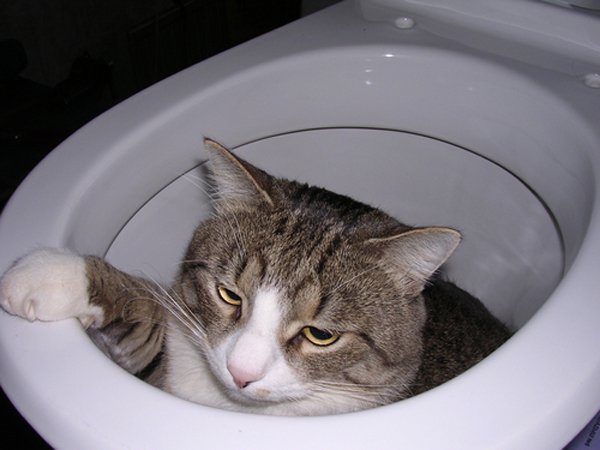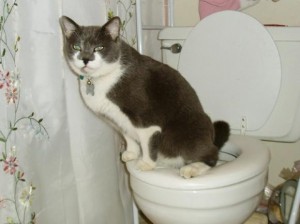The Dangers of Flushing Cat Poop Down Your Toilet - Advice for Better Disposal
The Dangers of Flushing Cat Poop Down Your Toilet - Advice for Better Disposal
Blog Article
They are making a few good points relating to Can You Flush Cat Poop Down The Toilet? as a whole in this article directly below.

Intro
As cat owners, it's important to be mindful of exactly how we deal with our feline good friends' waste. While it might appear hassle-free to flush feline poop down the bathroom, this technique can have damaging consequences for both the environment and human health.
Ecological Impact
Flushing feline poop presents harmful microorganisms and bloodsuckers right into the water supply, presenting a substantial threat to aquatic communities. These pollutants can negatively affect aquatic life and concession water high quality.
Health and wellness Risks
Along with environmental worries, flushing feline waste can also position health risks to human beings. Pet cat feces might include Toxoplasma gondii, a parasite that can create toxoplasmosis-- a possibly serious illness, specifically for expectant ladies and individuals with damaged immune systems.
Alternatives to Flushing
Fortunately, there are more secure and extra accountable means to get rid of pet cat poop. Take into consideration the adhering to alternatives:
1. Scoop and Dispose in Trash
The most typical technique of dealing with cat poop is to scoop it into an eco-friendly bag and toss it in the trash. Make certain to utilize a dedicated litter inside story and take care of the waste immediately.
2. Usage Biodegradable Litter
Go with naturally degradable feline clutter made from materials such as corn or wheat. These trashes are eco-friendly and can be safely dealt with in the garbage.
3. Hide in the Yard
If you have a lawn, think about hiding pet cat waste in a designated location far from vegetable gardens and water sources. Make certain to dig deep enough to prevent contamination of groundwater.
4. Set Up a Pet Waste Disposal System
Buy a pet dog garbage disposal system particularly designed for pet cat waste. These systems utilize enzymes to break down the waste, reducing smell and ecological impact.
Conclusion
Liable pet dog possession prolongs beyond offering food and shelter-- it also involves correct waste monitoring. By avoiding purging feline poop down the commode and choosing different disposal approaches, we can reduce our ecological impact and protect human health.
Why You Should Never Flush Cat Poop Down the Toilet
A rose by any other name might smell as sweet, but not all poop is created equal. Toilets, and our sewage systems, are designed for human excrement, not animal waste. It might seem like it couldn’t hurt to toss cat feces into the loo, but it’s not a good idea to flush cat poop in the toilet.
First and foremost, assuming your cat uses a litter box, any waste is going to have litter on it. And even the smallest amount of litter can wreak havoc on plumbing.
Over time, small amounts build up, filling up your septic system. Most litter sold today is clumping; it is made from a type of clay that hardens when it gets wet. Ever tried to scrape old clumps from the bottom of a litter box? You know just how cement-hard it can get!
Now imagine just a small clump of that stuck in your pipes. A simple de-clogger like Drano isn’t going to cut it. And that means it’s going to cost you big time to fix it.
Parasitic Contamination
Believe it or not, your healthy kitty may be harboring a nasty parasite. Only cats excrete Toxoplasma in their feces. Yet it rarely causes serious health issues in the cats that are infected. Most people will be fine too if infected. Only pregnant women and people with compromised immune systems are at risk. (If you’ve ever heard how women who are expecting are excused from litter cleaning duty, Toxoplasma is why.)
But other animals may have a problem if infected with the parasite. And human water treatment systems aren’t designed to handle it. As a result, the systems don’t remove the parasite before discharging wastewater into local waterways. Fish, shellfish, and other marine life — otters in particular — are susceptible to toxoplasma. If exposed, most will end up with brain damage and many will die.
Depending on the species of fish, they may end up on someone’s fish hook and, ultimately on someone’s dinner plate. If that someone has a chronic illness, they’re at risk.
Skip the Toilet Training
We know there are folks out there who like to toilet train their cats. And we give them props, it takes a lot of work. But thanks to the toxoplasma, it’s not a good idea.

Do you like reading about How to Dispose of Cat Poop and Litter Without Plastic Bags? Give a remark further down. We will be glad to hear your thoughts about this post. We are looking forward that you come back again in the near future. Are you aware of another person who is very much interested in the subject? Feel free to promote it. Thank you for your time. Visit again soon.
Call Today Report this page